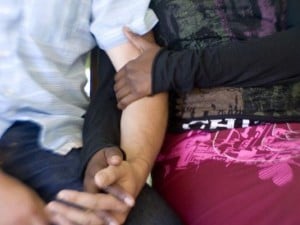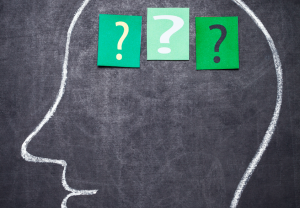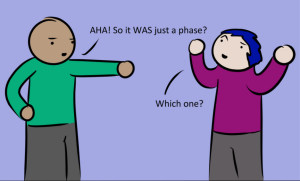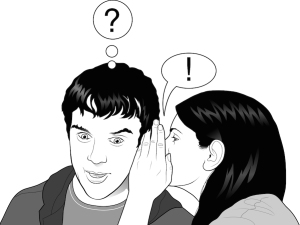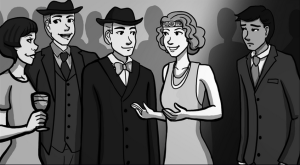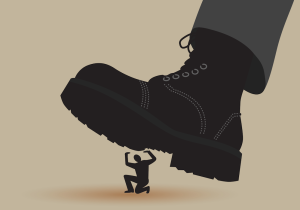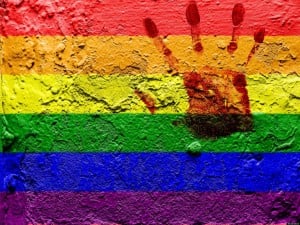
Source: Huffington Post
A transgender female youth is forced to stay on the “male” side of a homeless shelter after being kicked out of her home because of her gender identity.
A bisexual female youth in a mental health facility is told that she just “doesn’t know what she is talking about” when she is overheard telling another girl that she wants to have sex with her (even though she is certainly old enough to know).
A teen dating violence relationship between two lesbian girls is minimized because of their sexual orientation.
These are just a few frustrating examples of the unfair – and even cruel – treatment that youth who are sexual or a/gender minorities have faced that I have personally witnessed. Obviously, there are many more – and some have had outcomes that were much worse.
This article seeks to explore three specific issues that have a major impact on the mental health of LGBTQIA+ youth.
Here are a few things you need to know to better understand this article:
Information about mental health and those who are queer is not specifically addressed in this article because queer can encompass several orientations, which may be addressed individually or as a group in this article.
Still, I am leaving the Q in the title because much of this research is relevant to folks who are queer, but may not identify specifically with another orientation.
Also, some research I will refer to has been conducted with some populations, but not others. When that is the case, I will be sure to state exactly which populations were included.
Because of their enormous diversity, this article will not be able to cover the mental health information of young people of all or no genders, or all or no sexual orientations.
It is not because we do not recognize you. What it means is that we need even more research on a/gender matters and sexual orientation in order to better help our diverse youth.
Let’s look at these three issues that seem to come up time and time again when discussing LGBTQIA+ youth and their mental well-being.
1. Acceptance by Others
Research has found that the reactions that youth receive when they disclose their true self can have a bearing on their mental health.
One study looked at why LGB youth report more substance use and abuse than their heterosexual peers and found that youth who experienced rejection based on their sexual orientation were more likely to use substances.
The research also found that accepting attitudes toward the youth’s disclosure can actually serve as a buffer sometimes if they later face rejection from someone. So acceptance clearly has its benefits.
Another thing to consider is that acceptance by cisgender heterosexual people is not the only kind that these youth have to worry about.
Just because LGBTQIA+ is all lumped together doesn’t mean that all of these communities have historically played nice in the Acceptance Sandbox.
Let’s look at bisexual youth.
One issue of acceptance these youth have to manage is bi erasure. Many folks reject the idea that bisexuality exists and have no hesitation about shouting this from the rooftops and turning their backs. This occurs with heterosexual people, as well as gays and lesbians and others.
And while they are doing that, these kids are paying attention and paying for it.
Research specifically conducted with bisexual youth found that these youth know much less about safe resources that can help them and report lower levels of family acceptance than their gay or lesbian peers.
This really shouldn’t be shocking news if you consider that the outreach for these youth may be underdeveloped because of these beliefs about bisexuality.
How has this issue (among others) impacted the mental health of our bisexual youth? Well, one study showed that bisexual youth reported experimenting with alcohol and drugs more than gay and lesbian youth, and almost twice as often as straight youth.
So there does seem to be a problem.
Another community that receives far less attention than others and has experienced extreme negative consequences because of a lack of acceptance is the intersex community.
One of the most controversial issues facing intersex youth occurs before many of them are old enough to be aware of it.
For many years, children born with intersex conditions or Differences of Sex Development (DSD) have been subjected to treatment, both medically and psychologically, that we have learned is harmful both physically and emotionally to many of those with these conditions.
And a fundamental reason behind this treatment is a lack of acceptance.
Many simply don’t accept that there are a diversity of bodies and not all of them conform to what society has defined as “male” or “female” sexes. And for years, attempts to make children fit into one of these gender molds included surgeries and secrets and many other things that people with intersex conditions are speaking out about.
Fortunately, some headway is being made in changing the way the medical community is managing these conditions by developing informed curricula to train health care providers.
Still, there is a long way to go, and elective surgeries on children with intersex conditions are still being performed.
It’s not hard to imagine how issues such as these can have a bearing on the mental health of intersex children and adults. Some mental health organizations have developed resolutions acknowledging the harm done to intersex children and outlining their support of advocacy groups.
It is the testimony of many of these adults who have been through such treatments as children that they have experienced depression, shame, sexual dysfunctions, and other issues as a result. They are forcing people to start listening about their experiences.
And we should listen.
Acceptance by others has been shown to influence how youth view what is in store for them in the future.
Research conducted with LGBT youth found that, compared to their straight and cisgender peers, they are much less optimistic about obtaining future goals such as going to college, getting a good job, having a steady relationship, and just being happy if they remained in their current community.
This lack of optimism has been tied to the youth’s opinions about how accepting their community is toward LGBT people.
So is it any wonder, then, why our youth sometimes describe their situation as “hopeless” when they can’t imagine being able to get out of the position they are currently in? And how could this not affect their mental well-being?
Every individual LGBTQIA+ community has unique challenges that could be mentioned under the heading of acceptance. Those mentioned are just a few. But they clearly provide strong evidence that acceptance is critical to the mental health of our youth.
2. Hatred and Aggression
As if being unaccepted isn’t bad enough, some youth face blatant hatred and aggression simply for being who they are. And there is plenty of evidence suggesting that this kind of treatment has a negative impact on the mental health of these youth.
Youth who experience violence and stress as a result of hatred and bullying have reported depression, anxiety, substance abuse, suicidal behaviors, and other serious issues.
A national study with LGB youth found that they were more than twice as likely to attempt suicide compared to their heterosexual peers. One study conducted with transgender youth found that 25% of the youth had attempted suicide.
Often times, questioning youth are left out of the conversation, but according to one study, youth who were questioning their sexual orientation reported more homophobic bullying, depression, suicidal behaviors, and substance abuse than their heterosexual or LGB peers.
The awful treatment of transgender and gender non-conforming youth is something that should have our entire society hanging our collective heads in shame.
Youth report cyberbullying, physical and sexual assault, and feeling unsafe in their schools. Experiencing this kind of trauma certainly has a negative emotional impact on our transgender and gender-nonconforming youth.
Other research with gender non-conforming and LGBT youth found that the negative impact of homophobic responses toward them carried on into young adulthood and was related to depression and negative psychological and social adjustment.
3. Internalized Feelings and Beliefs
In addition to youth within the LGBTQIA+ communities experiencing external pressures that impact their mental health, they can also struggle with internal feelings and beliefs that have an impact on their mental well-being.
Children are socialized to start drawing lines between genders since before they are really even aware of it. And our heteronormative society makes it pretty clear which sexual orientation is the “correct” one.
Is it really a surprise, then, that these societal expectations have led youth to feel “abnormal” and be filled with self-loathing, fear, and doubt?
Let’s look at asexual youth for a minute.
Just like LGB youth are frequently told that they are simply too young to really know their sexual orientation, asexual youth receive this same message many times over because everybody is expected to be sexually attracted to somebody.
They have the additional pressure of knowing that all around them people are celebrating and defending their sexual attraction and that may leave them feeling even more isolated.
Websites and support groups specifically for asexual people offer support to people who are feeling this way about themselves. Asexuality is very much understudied, and research needs to be conducted to learn more about the mental health of asexual youth.
Still, even without tons of data, supportive websites are answering questions posed by people who believe they may be asexual and are afraid and want to reject it because they want to be “normal.”
We need to throw out that damn word.
***
We know that when our youth don’t feel protected, safe, and accepted, it has real negative mental health consequences on them. It can have an effect on how they feel about themselves in this world, their relationships, and their life satisfaction. It is related to negative behaviors that the youth may engage in in an attempt to cope.
If you would like to be an advocate for these youth, start by learning as much as you can about the challenges that they are facing and actively work on their behalf.
They really need us.
[do_widget id=”text-101″]
Dr. Robin Landwehr is a Contributing Writer for Everyday Feminism She’s a mental health counselor and an unapologetic feminist. She holds a Doctor of Behavioral Health degree from Arizona State University, a M.S. degree in Mental Health Counseling from Capella University, and is a licensed counselor in North Dakota and Florida. You can follow Robin on Twitter @RobinLandwehr1 or visit her sometimes neglected personal blog at The Hippie in Me Blog.
Search our 3000+ articles!
Read our articles about:
Our online racial justice training
Used by hundreds of universities, non-profits, and businesses.
Click to learn more





